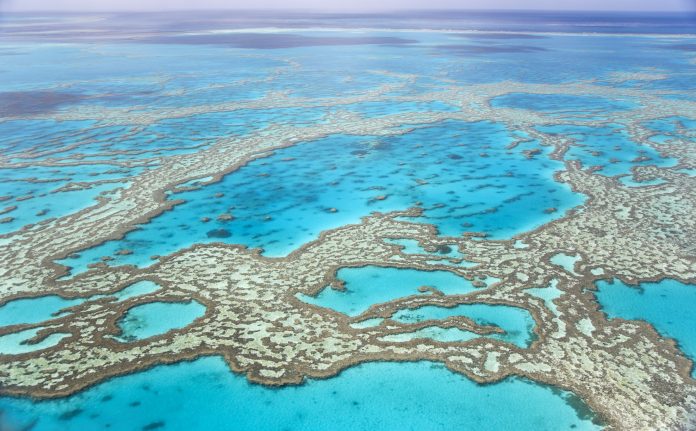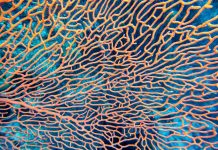The genetic diversity of Australia’s Great Barrier Reef could hold the key to its survival and adaptation to climate change impacts
A new study conducted by Southern Cross University has uncovered a surprising diversity in heat tolerance among corals on Australia’s Great Barrier Reef.
The survival of coral reefs
The study focused on the table coral species Acropora hyacinthus across 17 reefs spanning the Great Barrier Reef. Lead researcher Melissa Naugle and her team used innovative portable systems to measure the heat tolerance of over 500 coral colonies directly at sea.
Their findings showed a significant presence of heat-tolerant corals across various reef locations, underscoring the resilience potential inherent in the reef’s genetic resources.
“We found heat-tolerant corals at almost all the reefs that we studied, highlighting how corals across the entire Great Barrier Reef may hold genetic resources that are important for protection and restoration,” said Melissa.
“This is important news for corals, which are experiencing the 4th global mass bleaching event and unprecedented summer sea temperatures on the Great Barrier Reef. Naturally occurring heat tolerance variation is crucial for corals to adapt to climate warming and for the success of restoration initiatives.”
The study’s co-author, Dr. Line Bay from the Australian Institute of Marine Science, emphasised the importance of understanding such genetic variation for the future of coral reefs. “Differences between individual corals is the fuel for natural selection to produce future generations of more tolerant corals,” Dr. Bay explained.
Preserving Australia’s Great Barrier Reef
The research contributes to ongoing efforts under the Reef Restoration and Adaptation Program (RRAP), aimed at preserving and restoring coral reefs despite environmental challenges.
Dr. Emily Howells, also from Southern Cross University and a key figure in RRAP, pointed out the potential for selective breeding programs to leverage this newfound diversity. “Heat tolerance variation can be useful for restoration programs such as selective breeding, which may accelerate adaptation to produce offspring better suited to warmer waters. Though, this outcome depends on how much of the heat tolerance variation we observe is tied to heritable gene variants.”
The study quantified the extent of heat tolerance variation among corals and also investigated its underlying genetic and environmental drivers. While environmental factors like sea temperatures were significant, a substantial portion of the observed variation appears rooted in genetic differences among individual corals.
“Next, we’ll analyse DNA-sequencing data from these individuals to identify gene variants associated with heat tolerance. Melissa Naugle disclosed. This can help us understand the adaptation potential of natural coral populations and inform selective breeding work,”
As promising as these advancements are, researchers warn that reducing greenhouse gas emissions remains essential for ensuring a sustainable future for coral reefs worldwide. Despite the potential of genetic resilience, mitigating climate impacts remains the linchpin in safeguarding these invaluable ecosystems.











